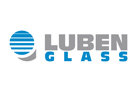Glaston has delivered a letter of commitment to the international Science Based Targets (SBTi) initiative and has started working on near-term company-wide emissions reduction targets in line with the SBTi’s criteria. The new targets will be submitted to the SBT climate organization for validation and they cover the reduction of greenhouse gas emissions from both Glaston’s own operations (Scope 1 & 2) and the whole supply chain (Scope 3).
One of the focus areas in Glaston’s strategy is sustainable business. Last year, the company took a major step forward in reducing its carbon footprint by achieving its first emissions reduction target: Reducing the CO2 emissions from Glaston’s own operations by 50% in relation to net sales compared to the 2020 level.
The company is currently working on setting the next emissions target covering the emissions from the entire value chain. In line with the SBT initiative, it will be determined in such a way that it supports the goal of the Paris Agreement to limit global warming to 1.5 °C. By signing the letter of commitment, Glaston has joined the growing number of companies that commit to setting science-based emissions reduction targets.
Focus on reducing the electricity consumption of products
Glaston sees the promotion of sustainable development as an opportunity, and as a frontrunner in its industry, the company wants to be involved in developing energy-efficient and carbon-neutral societies of the future.
Glass processed with Glaston’s machinery are used in the architectural glass, automotive glass, solar energy, and display industries. Most of the glass produced using the company’s technology is supplied to the construction industry.
“Glass plays a key role in achieving the energy efficiency targets for buildings in both new and renovation construction, and the technologies we have developed enable the production of more energy-efficient glass structures. In addition, tempered or heat-strengthened glass is a key component of solar panels, and thereby we are enabling the growth of solar energy and emission-free electricity production. As glass production processes consume electricity, commitment to the SBT initiative challenges us to develop even more energy-efficient equipment for our customers. Emissions in our value chain are increased particularly by the growth in the sales volume of the continuous mode solar glass processing equipment. On the other hand, it is precisely the end products of these processes, solar panels, that significantly contribute to the green transition. We also want to encourage our customers and suppliers to set themselves emissions reduction targets since working together is the only way we can achieve decisive results,” says Glaston’s CEO Anders Dahlblom.
The Science Based Targets initiative (SBTi) is a collaboration between World Resources Institute (WRI), the World Wide Fund for Nature (WWF), the United Nations Global Compact, and the Carbon Disclosure Project (CDP). Companies committed to the initiative set science-based emissions reduction targets for their operations in accordance with the Paris Agreement, which support measures to limit global warming to 1.5 °C.


























